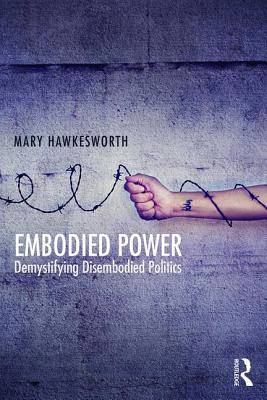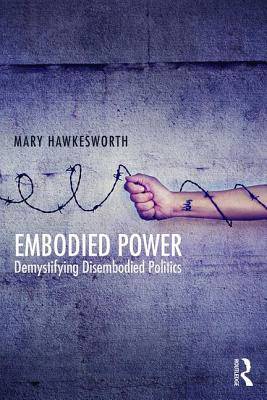
- Retrait gratuit dans votre magasin Club
- 7.000.000 titres dans notre catalogue
- Payer en toute sécurité
- Toujours un magasin près de chez vous
- Retrait gratuit dans votre magasin Club
- 7.000.0000 titres dans notre catalogue
- Payer en toute sécurité
- Toujours un magasin près de chez vous
Description
Embodied Power explores dimensions of politics seldom addressed in political science, illuminating state practices that produce hierarchically-organized groups through racialized gendering--despite guarantees of formal equality. Challenging disembodied accounts of citizenship, the book traces how modern science and law produce race, gender, and sexuality as purportedly natural characteristics, masking their political genesis. Taking the United States as a case study, Hawkesworth demonstrates how diverse laws and policies concerning civil and political rights, education, housing, and welfare, immigration and securitization, policing and criminal justice create finely honed hierarchies of difference that structure the life prospects of men and women of particular races and ethnicities within and across borders. In addition to documenting the continuing operation of embodied power across diverse policy terrains, the book investigates complex ways of seeing that render raced-gendered relations of domination and subordination invisible. From common assumptions about individualism and colorblind perception to disciplinary norms such as methodological individualism, methodological nationalism, and abstract universalism, problematic presuppositions sustain mistaken notions concerning formal equality and legal neutrality that allow state practices of racialized gendering to escape detection with profound consequences for the life prospects of privileged and marginalized groups. Through sustained critique of these flawed suppositions, Embodied Power challenges central beliefs about the nature of power, the scope of state action, and the practice of liberal democracy and identifies alternative theoretical frameworks that make racialized-gendering visible and actionable.
Key Features:
- Demonstrates how understandings of politics change when the experiences of men and women of diverse classes, races, and ethnicities are placed at the center of analysis.
- Explains why race-neutral and gender-neutral policies fail to eliminate entrenched inequalities.
- Shows how accredited methods in political science (and the social sciences more generally) mask state practices that create and sustain racial and gender inequality.
- Traces how mistaken notions of biological determinism have diverted attention from political processes of racialization, gendering, and sexualization.
- Argues that the intersecting categories of race, class, gender, and sexuality are essential to all subfields of political science if contemporary power is to be studied systematically.
Spécifications
Parties prenantes
- Auteur(s) :
- Editeur:
Contenu
- Nombre de pages :
- 190
- Langue:
- Anglais
Caractéristiques
- EAN:
- 9781138667310
- Date de parution :
- 12-05-16
- Format:
- Livre broché
- Format numérique:
- Trade paperback (VS)
- Dimensions :
- 152 mm x 229 mm
- Poids :
- 281 g

Les avis
Nous publions uniquement les avis qui respectent les conditions requises. Consultez nos conditions pour les avis.






